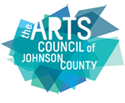A Conversation with Dr.DeGroat About Community-based Art Programs
When military veterans leave the military to transition back into civilian life, service members face a variety of challenges in their personal and professional life that prevent them from leading successful lives. While every military veteran is different with their own unique set of experiences, some of the common challenges that military veterans face relates to access to employment opportunities and quality human health services. However, community-based art programs serve as a creative outlet for military veterans to express themselves and overcome certain barriers. To better understand the obstacles our military veterans face, and how community-based art programs can promote personal growth and success among military veterans, we interviewed Dr. Author DeGroat to open a broader conversation about these areas of interests.
Dr. DeGroat is a retired Lieutenant Colonel and Executive Director of Military & Veteran Affairs at Kansas State University. He is a nationally recognized scholar who has contributed significant research in military transition and reintegration. This is a two-part interview with Dr. DeGroat and is part of the Arts Council of Johnson County’s collaborative arts and veterans programming with After Action Network and Johnson County Park & Recreation.
What are three major barriers that prevent military veterans from transitioning out of military service into civilian life?
Three of the major challenges military service members face when they transition back into civilian life after their service are (1) adjusting to civilian and workplace culture which differs significantly from the military; (2) having a well-thought-out objective on what and where they want to work, live and play; and (3) lack of social capital (connections to influential civilian people who can help them navigate job searches, communities, housing, etc.).
How do you think community-based art-programs can play a greater role in the lives of military veterans to overcome these barriers?
Community-based arts programs have been found to offer non-threatening places and programs that allow veterans to re-connect and discover the differences in how civilian life operates from what they were accustomed to in the military. Arts programs also stimulate creative energies of the veterans that are needed to craft new life pathways for themselves. Most arts-based programs entail a form of self-expression of their military experiences—which helps them define for themselves what that life meant to them as a point of departure on to what they may wish to do next. Lastly, community-based programs offer veterans opportunities to make new acquaintances and friendships that can lead to networking and other socially valuable resources one needs to successfully form new identities and purposes.



